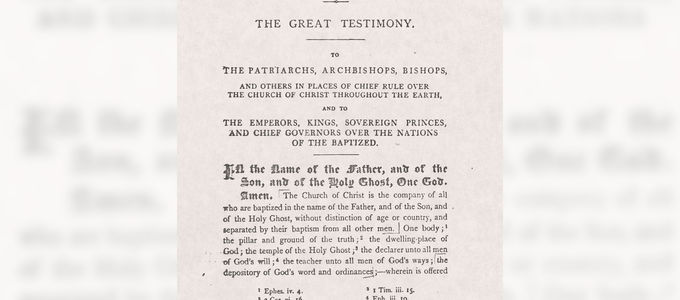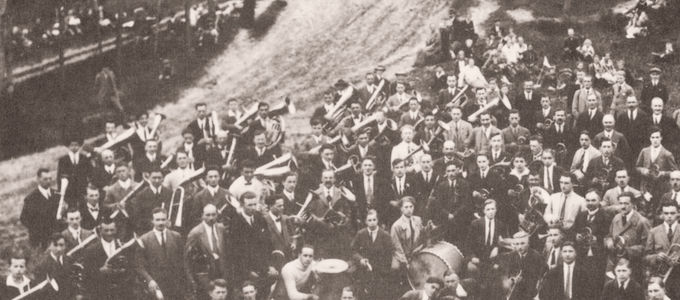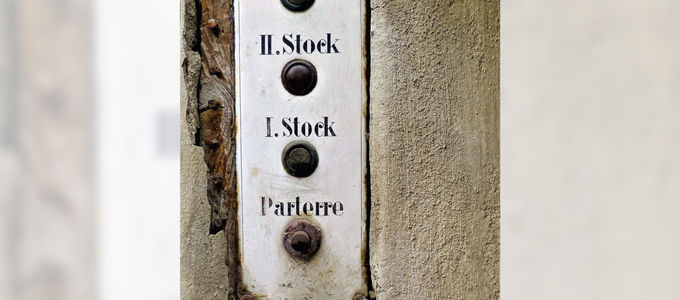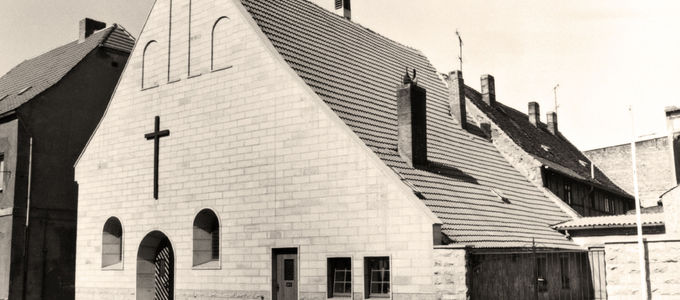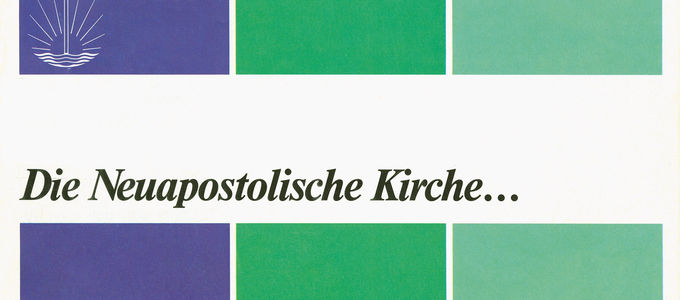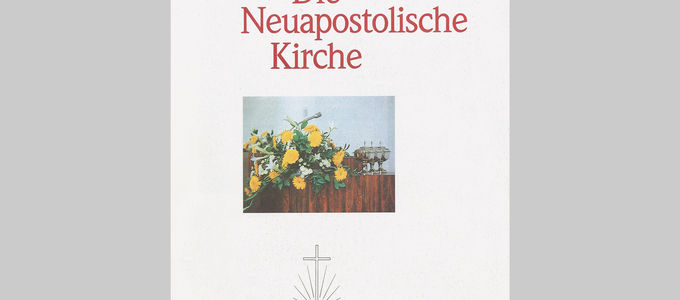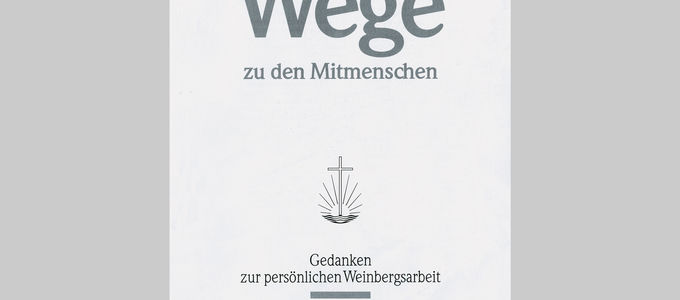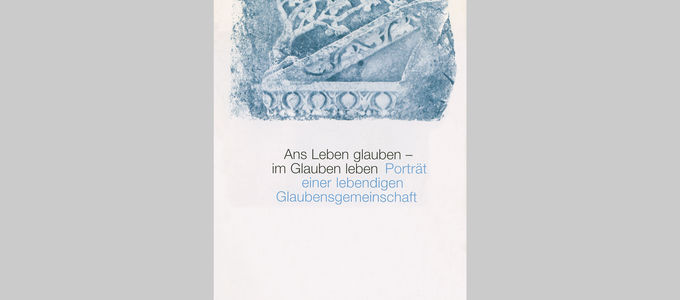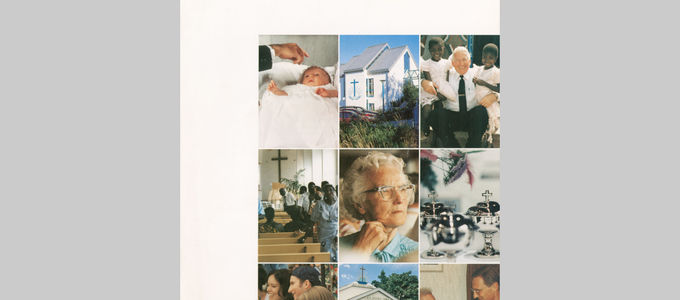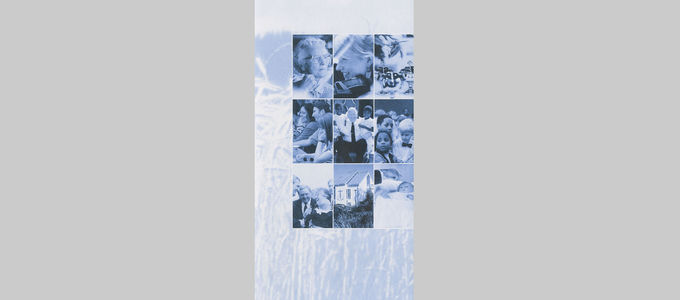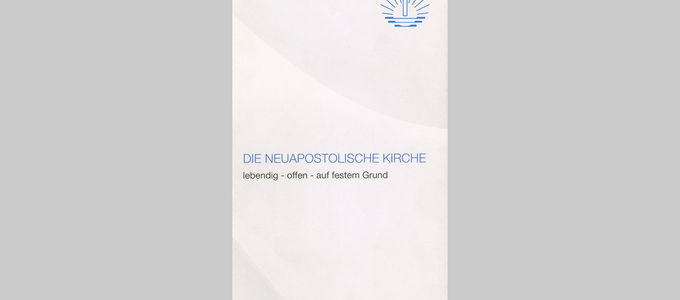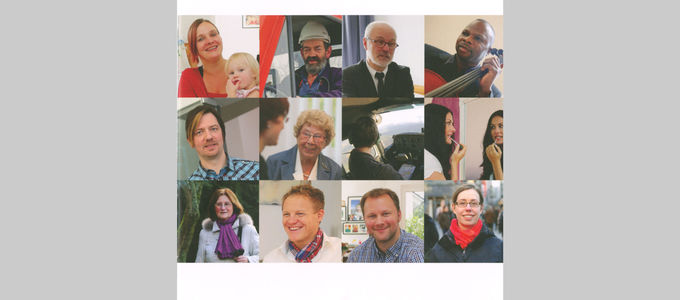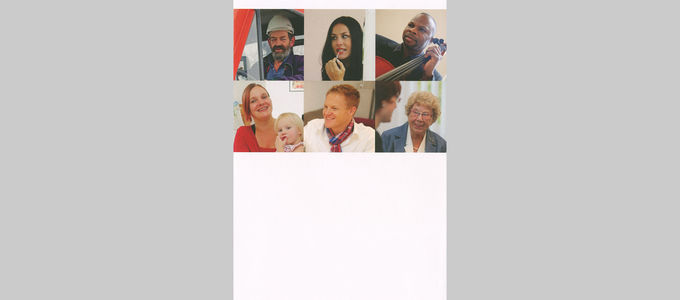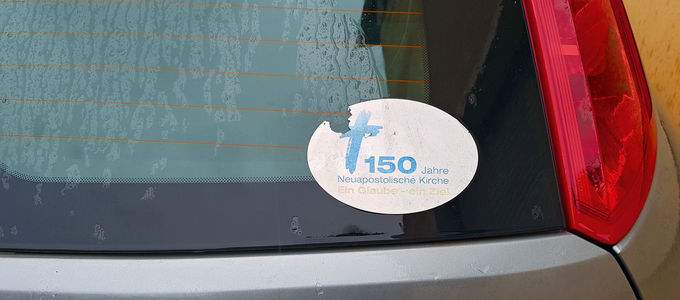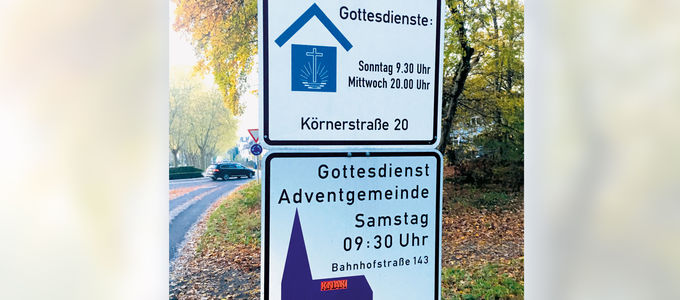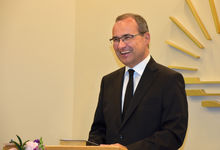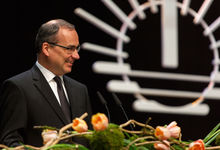Professing Jesus Christ
Anyone who is convinced of their faith wants to share it with others. While the profession of faith is still the same, times have changed as has the way of calling attention to our church. A look back at the developments in Europe.
1837: Apostles present themselves to the public
In The Great Testimony, the Apostles of the Catholic Apostolic Church shared their ideas on how the Church should change and why there should be Apostles again. The Great Testimony was originally written in English, but was translated into German, Latin, and French. The printed version has 89 pages. The document, written in the year 1837, was to be presented to church representatives and heads of state in Europe. Among the distinguished recipients were to be the Pope, the emperor of Austria, and the king of France. The Apostles’ initiative, however, elicited no response. In fact, in some cases the emissaries were turned away without being able to even present The Great Testimony.
1926: the missionising process with brass bands
Between the two World Wars, brass bands began to emerge in many congregations. At the beginning of the nineteenth century, spreading the Word by way of brass bands was made popular by Protestant youth associations, who paraded through the cities and villages with their instruments on mission festivals or on Christian holidays. In the 1920s, New Apostolic brass players in some places even accompanied brothers and sisters home, making music along the way.
1933: ban on promotion
In the spring of 1933, the Ministry of the Interior of Württemberg issued an advertising ban for the New Apostolic Sect, as they called it. Failure to comply was threatened with the dissolution of the sect and its institutions because of the endangerment of public order. The promotional activity of the Church was described as "intense, and at times forceful, to the point of unlawful entry”. In the following years, the promotion ban was extended to all regions of Germany.
1960: divine services in Italian
Starting in the 1960s, migrant workers mainly from southern and south-eastern Europe, came to Germany. Chief Apostle Walter Schmidt encouraged the brothers to testify to the migrant workers in their mother tongue. The first divine services of the Church’s foreign-language mission, as it was called, were held in Italian. This also led to the establishing of foreign-language congregations in the 1980s.
1980: A window as a showcase
In former East Germany, the possibilities of acquainting people with the New Apostolic Church were very limited. Even putting up showcases in front of the churches was not allowed. Members from the congregation of Calbe in Saxony-Anhalt came up with an ingenious idea: their church building, a former abbey church, had low-lying windows with wide windowsills, which they decorated with text and photo boards about the New Apostolic Church, so that passers-by could learn about the Church and the activities of the congregation.
1986: Information leaflets
In the 1980s, Chief Apostle Hans Urwyler commissioned press kits and information leaflets about the New Apostolic Church in the principle languages. They were to replace the many different tools being used for missionary work in the various regions. Public figures were presented with a lavishly designed press kit in red leatherette embossed with gold letters, which included an audio cassette with excerpts from divine services by the Chief Apostle.
1991: Ways to our fellow-men
After World War Two, the Church grew not least because of intensive and systematic vineyard work. That meant that brothers went door-knocking in the evenings, ringing at select or random addresses in order to invite people to church. In the 1980s it was apparent that this form of testifying was no longer in keeping with the times. A brochure was developed, Ways to our fellow-men, in which Chief Apostle Richard Fehr wrote that this method of coming into contact with people was often no longer possible on account of peoples’ changed living conditions. The pamphlet was intended to support New Apostolic Christians in testifying of their faith. The most important aspect for Chief Apostle Fehr was “prayer, our personal conviction of faith, and our exemplary conduct”.
Today: information boards
One possibility of public relations work are information boards at the entrance to towns or villages. Permits can be obtained from the municipality. As soon as permits have been granted, the information boards can be ordered from the respective District Church. In most cases, the city or town will install the information boards.
Creating awareness at the personal level
All it takes sometimes is a sticker on your car, your laptop, or your handbag to start a conversation with someone about your faith.


